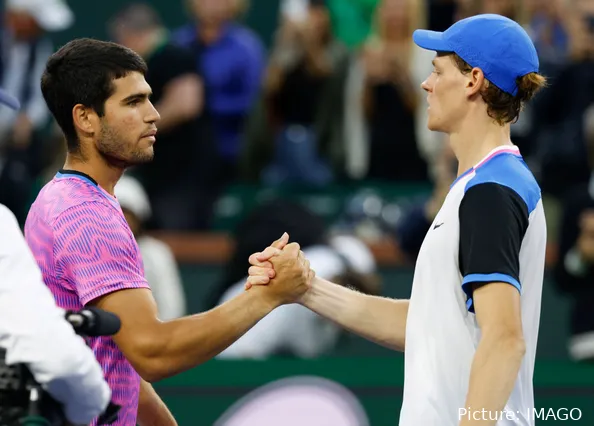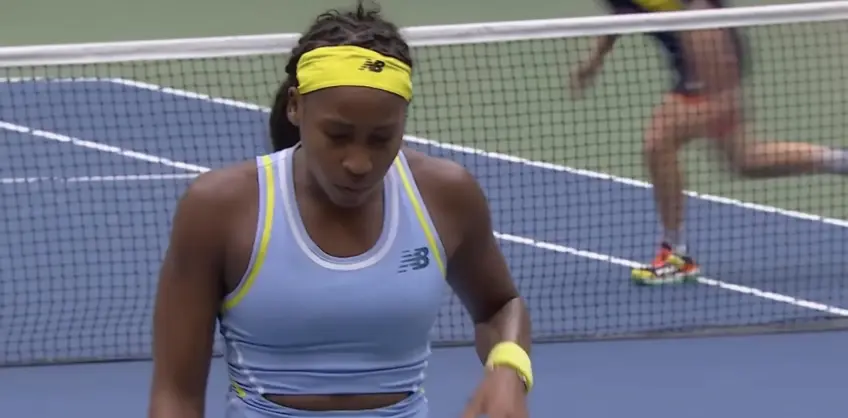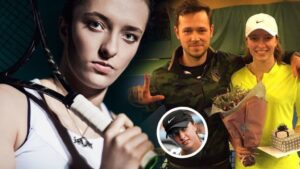Now that she has lived it, endured the struggles and fought back to once again hold a winner’s trophy aloft on the eve of the US Open, Aryna Sabalenka is able to reflect on what has been.
The past two months for the woman now the favourite to triumph at the year’s final grand slam tournament were dominated by a debilitating shoulder injury that ruled her out of playing at Wimbledon. The few weeks before that were spent battling illness, first when she was laid low in bed for days before the Italian Open, and then struck by a stomach bug that dashed her French Open
When his death was first announced, Koltsov was widely reported to still be Sabalenka’s partner, until she clarified that “while we were no longer together, my heart is broken”. Aside from that briefest of statements on social media, and another thanking her fans for support, she has markedly not discussed what she described as an “unthinkable tragedy”, nor has she deviated from her work.
Just as she did after the death in 2019 of her father, Sergey, who was so influential in cultivating her tennis path, Sabalenka devoted herself to hitting balls.
The day after Koltsov died, she practised in full view of the public before the Miami Open. A few days later, she took on her good friend Paula Badosa at that tournament, the only slight acquiescence to the situation being to forgo her usual media duties. It was little surprise when she made early exits in Miami and the event in Stuttgart that followed.
It is only now, months and an injury-enforced absence later, that the 26-year-old is able to recognise that she probably should have done things differently.
“Once, I lost my father and tennis helped me to go through that tough loss,” she said. “So at that moment [of Koltsov’s death] I thought I had to just keep going, keep playing, keep doing my thing to separate my personal life from my career life.
“But at the end I would say I was struggling a lot healthwise because I didn’t stop. It was really emotional and really stressful, and kind of damaged my mental health at that point.
“Probably, looking back right now, I would say that a better decision would have been to step back, reset and recharge, and start everything over again. But I did what I did. At the end I paid for my decision, but I’m really glad that I have tennis in my life and it’s really helped me go through whatever and get stronger.”
So could the recent shoulder injury be considered an accidental positive by forcing her to take time away from the court? “Yeah, definitely,” she says. “I realised it only after I was injured and had to step back that actually it was something much needed.
“It was really sad and I was struggling a lot not to play Wimbledon, of course, but at the same time I was able to take all the benefits from the time. I was doing a lot of rehab and treatment, but I was able to enjoy my life and my time away from tennis, and take all the good sides of not competing on tour.
“At the end I figured out that it was much needed. Now I feel physically and mentally much better and much stronger.”
A key component has been the support of her new boyfriend, the Oakberry acai brand founder Georgios Frangulis, whom she thanked publicly on court after her Cincinnati Open win this week. Sabalenka has recently released her own personalised Power Serve bowl through the company – “It’s a cool, healthy snack that gives lots of energy,” she says – which raises the question of which came first, the endorsement or the personal relationship?
She greets it with a familiar laugh, before confirming she met Frangulis only through the business deal: “We signed the contract, then we got to know each other and somehow we ended up being together.”
That win in Cincinnati was not without controversy, when it emerged she was paid exactly half of the $1,049,460 (£805,198) prize money claimed by the men’s champion, Jannik Sinner, in a tournament in which men and women play best-of-three-set matches.
“From the TV point of view, from the ticket selling, from every point of view, it’s unfair,” Sabalenka said. “Of course, guys are always going to be physically stronger than women but it doesn’t mean we’re not working as hard as they do. Women deserve to be paid an equal amount of money that men do.”
With the US Open starting in New York on Monday, Sabalenka’s triumph – her first title since winning the Australian Open in January – could not have come at a more opportune time. After struggling at comeback tournaments in Washington and Toronto, the Belarusian did not drop a set all tournament in Cincinnati, notching up a first straight-sets win against the world No 1, Iga Swiatek, in the semi-final before seeing off the home favourite Jessica Pegula for the title.
Now back up to No 2 in the world rankings and installed as favourite to go one better than her runner-up finish at the US Open last year, Sabalenka says the victory has given her “so much belief” that she can claim a first grand slam title away from her two Australian Open wins.
Having now met Swiatek four times in either finals or semi-finals over the past year – albeit not at any grand slam tournament – Sabalenka hopes her rivalry with the Pole might cement their status as the dominant duo of women’s tennis.
“Beating Iga in two sets was crazy and something I’m really happy about. I think it’s something we are working really hard on, to make sure we face each other in the last stages of every tournament – that we keep going with this rivalry between the two of us.
“We cannot forget about [Elena] Rybakina, about [Barbora] Krejcikova, about Coco [Gauff]. And also Paula [Badosa] is coming back from injury and doing really well. But I would definitely like to see us competing in the last stages of a tournament as often as possible.
“I think that’s something cool for women’s tennis, to have several big names always reaching the last stages of the tournament; to see this consistency.”



